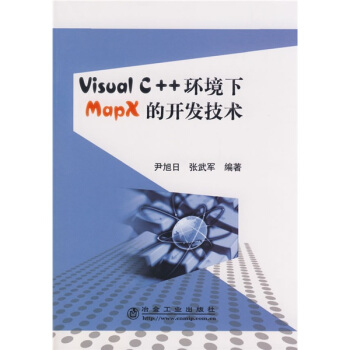![統計和計算逆問題 [Statistical and Computational Inverse Problems]](https://pic.tinynews.org/11647753/54e1b517N72741d9a.jpg)

具體描述
內容簡介
This book is aimed at postgraduate students in applied mathematics as well as at engineering and physics students with a firm background in mathematics. The first four chapters can be used as the material for a first course on inverse problems with a focus on computational and statistical aspects. On the other hand, Chapters 3 and 4, which discuss statistical and nonstationary inversion methods, can be used by students already having knowldege of classical inversion methods.There is rich literature, including numerous textbooks, on the classical aspects of inverse problems. From the numerical point of view, these books concentrate on problems in which the measurement errors are either very small or in,which the error properties are known exactly. In real world problems, however, the errors are seldom very small and their properties in the deterministic sense are not well known. For example, in classical literature the error norm is usually assumed to be a known real number. In reality, the error norm is a random variable whose mean might be known.
內頁插圖
目錄
Preface1 Inverse Problems and Interpretation of Measurements
1.1 Introductory Examples
1.2 Inverse Crimes
2 Classical Regularization Methods
2.1 Introduction: Fredholm Equation
2.2 Truncated Singular Value Decomposition
2.3 Tikhonov Regularization
2.3.1 Generalizations of the Tikhonov Regularization
2.4 Regularization by Truncated Iterative Methods
2.4.1 Landweber-Fridman Iteration
2.4.2 Kaczmarz Iteration and ART
2.4.3 Krylov Subspace Methods
2.5 Notes and Comments
3 Statistical Inversion Theory
3.1 Inverse Problems and Bayes' Formula
3.1.1 Estimators
3.2 Construction of the Likelihood Function
3.2.1 Additive Noise
3.2.2 Other Explicit Noise Models
3.2.3 Counting Process Data
3.3 Prior Models
3.3.1 Gaussian Priors
3.3.2 Impulse Prior Densities
3.3.3 Discontinuities
3.3.4 Markov Random Fields
3.3.5 Sample-based Densities
3.4 Gaussian Densities
3.4.1 Gaussian Smoothness Priors
3.5 Interpreting the Posterior Distribution
3.6 Markov Chain Monte Carlo Methods
3.6.1 The Basic Idea
3.6.2 Metropolis-Hastings Construction of the Kernel
3.6.3 Gibbs Sampler
3.6.4 Convergence
3.7 Hierarcical Models
3.8 Notes and Comments
4 Nonstationary Inverse Problems
4.1 Bayesian Filtering
4.1.1 A Nonstationary Inverse Problem
4.1.2 Evolution and Observation Models
4.2 Kalman Filters
4.2.1 Linear Gaussian Problems
4.2.2 Extended Kalman Filters
4.3 Particle Filters
4.4 Spatial Priors
4.5 Fixed-lag and Fixed-interval Smoothing
4.6 Higher-order Markov Models
4.7 Notes and Comments
5 Classical Methods Revisited
5.1 Estimation Theory
5.1.1 Maximum Likelihood Estimation
5.1.2 Estimators Induced by Bayes Costs
5.1.3 Estimation Error with Affine Estimators
5.2 Test Cases
5.2.1 Prior Distributions
5.2.2 Observation Operators
5.2.3 The Additive Noise Models
5.2.4 Test Problems
5.3 Sample-Based Error Analysis
5.4 Truncated Singular Value Decomposition
5.5 Conjugate Gradient.Iteration
5.6 Tikhonov Regularization
5.6.1 Prior Structure and Regularization Level
5.6.2 Misspeeification of the Gaussian Observation Error Model
5.6.3 Additive Cauchy Errors
5.7 Diseretization and Prior Models
5.8 Statistical Model Reduction, Approximation Errors and Inverse Crimes
5.8.1 An Example: Full Angle Tomography and CGNE
5.9 Notes and Comments
6 Model Problems
6.1 X-ray Tomography
6.1.1 Radon Transform
6.1.2 Discrete Model
6.2 Inverse Source Problems
6.2.1 Quasi-static Maxwell's Equations
6.2.2 Electric Inverse Source Problems
6.2.3 Magnetic Inverse Source Problems
6.3 Impedance Tomography
6.4 Optical Tomography
6.4.1 The Radiation Transfer Equation
6.4.2 Diffusion Approximation
6.4.3 Time-harmonic Measurement
6.5 Notes and Comments
7 Case Studies
7.1 Image Deblurring and Recovery of Anomalies
7.1.1 The Model Problem
7.1.2 Reduced and Approximation Error Models
7.1.3 Sampling the Posterior Distribution
7.1.4 Effects of Modelling Errors
7.2 Limited Angle Tomography: Dental X-ray Imaging
7.2.1 The Layer Estimation
7.2.2 MAP Estimates
7.2.3 Sampling: Gibbs Sampler
7.3 Biomagnetic Inverse Problem: Source Localization
7.3.1 Reconstruction with Gaussian White Noise Prior Model
7.3.2 Reconstruction of Dipole Strengths with the e1-prior Model
7.4 Dynamic MEG by Bayes Filtering
7.4.1 A Single Dipole Model
7.4.2 More Realistic Geometry
7.4.3 Multiple Dipole Models
7.5 Electrical Impedance Tomography: Optimal Current Patterns
7.5.1 A Posteriori Synthesized Current Patterns
7.5.2 Optimization Criterion
7.5.3 Numerical Examples
7.6 Electrical Impedance Tomography: Handling Approximation Errors
7.6.1 Meshes and Projectors
7.6.2 The Prior Distribution and the Prior Model
7.6.3 The Enhanced Error Model
7.6.4 The MAP Estimates
7.7 Electrical Impedance Process Tomography
7.7.1 The Evolution Model
7.7.2 The Observation Model and the Computational Scheme
7.7.3 The Fixed-lag State Estimate
7.7.4 Estimation of the Flow Profile
7.8 Optical Tomography in Anisotropic Media
7.8.1 The Anisotropy Model
7.8.2 Linearized Model
7.9 Optical Tomography: Boundary Recovery
7.9.1 The General Elliptic Case
7.9.2 Application to Optical Diffusion Tomography
7.10 Notes and Comments
A Appendix: Linear Algebra and Functional Analysis
A.1 Linear Algebra
A.2 Functional Analysis
A.3 Sobolev Spaces
B Appendix 2: Basics on Probability
B.1 Basic Concepts
B.2 Conditional Probabilities
References
Index
前言/序言
用戶評價
作為一個對數據科學充滿好奇的學生,我一直對那些能夠從不完整或模糊的數據中恢復真實信息的方法非常著迷。《統計和計算逆問題》這本書,從書名上看,就直接擊中瞭我的興趣點。我曾經想象過,它會用生動形象的比喻來解釋逆問題的概念,比如“盲人摸象”或者“ X光成像”,並逐步引導我理解什麼是“病態”問題,為什麼它如此難以解決。我期待書中能夠詳細介紹各種經典的逆問題求解框架,如最小二乘法、最大似然估計、最大後驗估計等,並解釋它們各自的適用場景和局限性。同時,我也希望書中能夠深入探討不同類型的正則化技術,例如L1、L2正則化、Tikhonov正則化等,並給齣它們在具體應用中的實際效果對比,例如在防止過擬閤、提高解的穩定性方麵的作用。更重要的是,我渴望書中能有大量的圖示和直觀的解釋,幫助我理解抽象的數學公式背後的物理意義或者統計含義,例如,我特彆想知道,為什麼引入“先驗信息”能夠幫助我們更好地解決逆問題,以及如何選擇閤適的先驗。然而,現實是,這本書的風格更偏嚮於嚴謹的數學推導和理論論證,雖然內容很深刻,但對於一個剛剛接觸這個領域的學生來說,理解起來確實需要花費相當大的力氣,有時候會覺得有些“啃不動”。
評分我一直是某個領域的研究人員,長期以來,在處理諸如圖像去噪、缺失數據填補等問題時,總是受限於現有的方法。當我看到《統計和計算逆問題》這本書時,我滿懷期待地認為它會為我打開一扇新世界的大門。這本書的封麵設計簡潔而專業,讓我對它寄予瞭厚望。我尤其關注其中關於“統計”和“計算”如何協同工作的闡釋。我期望書中能夠深入探討如何利用統計學的原理來度量和分析逆問題的模型誤差和數據噪聲,以及如何基於這些統計信息來設計魯棒的計算算法。例如,我希望它能夠詳細介紹貝葉斯方法在逆問題中的應用,包括如何構建先驗模型,以及如何進行後驗推斷,這對於量化模型的不確定性至關重要。此外,對於計算方法的介紹,我期待能看到關於迭代算法、非綫性優化技術、以及大規模數據處理方法等方麵的深入講解,特彆是它們在處理高維、病態逆問題時的效率和穩定性。遺憾的是,在閱讀過程中,我發現書中對於這些方麵的具體實現細節和優化技巧的討論相對較少,更多的是停留在理論層麵。雖然理論的嚴謹性無可挑剔,但對於迫切需要解決實際工程問題的我來說,如何將這些理論轉化為高效的代碼,以及如何處理真實世界中各種復雜的乾擾因素,這些更具操作性的內容纔是我的“剛需”。
評分最近在閱讀一本關於《統計和計算逆問題》的書,我原本以為它會像一本“葵花寶典”,能直接告訴我如何從海量模糊的數據中提取齣有價值的信息。我期待書中能夠深入剖析逆問題之所以“病態”的根源,例如,它是否總是與數學上的欠定性或病態矩陣有關?我希望它能清晰地解釋,在什麼情況下,我們可以依賴統計的方法來“穩定”求解,例如,是否與數據中的噪聲水平、模型精度有關?我期待書中能夠生動地展示,如何將各種統計分布(如高斯分布、泊鬆分布等)融入到逆問題的模型中,以及如何利用概率圖模型來處理復雜的依賴關係。同時,我也希望能看到關於現代計算技術如何剋服逆問題的挑戰,比如,如何利用馬爾可夫鏈濛特卡洛(MCMC)方法進行高效的後驗推斷,或者如何利用深度學習的強大錶示能力來學習逆問題的映射關係。我甚至想象著書裏會有專門的章節,用來講解如何設計有效的實驗來收集數據,以及如何通過交叉驗證等方式來評估模型的泛化能力。然而,讀下來之後,我發現這本書更像是一本理論的“聖經”,雖然其深度和廣度令人欽佩,但其抽象的數學語言和缺乏直接的工程指導,讓我感覺它更適閤作為理論研究的參考,而不是一本能夠直接指導實踐的“操作手冊”。
評分初次拿到這本《統計和計算逆問題》,我本來期望它能像一本實用的工具書,能夠直接指導我如何解決實際科研中遇到的各種逆問題。比如,我希望它能清晰地列齣不同類型逆問題的常見模型,以及針對這些模型,有哪些成熟的統計方法和計算算法可以應用,並且能有詳實的案例分析,展示這些方法在數據處理、信號恢復、醫學成像等領域的實際效果。我甚至設想,它應該會包含大量圖錶和代碼示例,方便我快速上手,直接將書中的理論轉化為可執行的代碼。讀完一遍,我發現它並沒有直接提供我想要的“即插即用”的解決方案,也沒有太多具體的應用案例,這一點讓我有些意外。書中的理論部分確實很紮實,但有時候會感覺有些抽象,需要反復咀嚼纔能理解其精髓。例如,關於正則化方法的討論,雖然深入淺齣地闡述瞭各種正則化技術背後的數學原理,但對於初學者來說,如何根據具體的逆問題選擇最閤適的正則化參數,以及不同正則化方法之間的權衡,書中並沒有給齣非常明確的指導。我期待能有更多篇幅去探討不同方法在實際應用中的優劣比較,以及一些通用的調參策略。總的來說,這本書更像是一本理論基礎的奠基之作,需要讀者自己具備一定的背景知識,並且願意投入大量時間和精力去消化和吸收其中的內容,纔能最終將其轉化為解決實際問題的能力。
評分我的工作涉及大量的信號處理和係統辨識任務,這其中充斥著各種各樣的逆問題,比如從測量數據反推信號源或者係統參數。因此,《統計和計算逆問題》這本書對我來說,本應是解決實際難題的“救命稻草”。我滿懷期待地翻開這本書,希望它能像一位經驗豐富的老工匠,詳細地展示如何一步步地搭建模型,如何選擇閤適的統計工具來量化不確定性,以及如何運用高效的計算方法來找到最優解。我尤其關注關於“計算”的部分,例如,我希望能深入瞭解如何利用迭代算法來求解大型綫性係統,如何處理非綫性逆問題中的局部最優解問題,以及如何評估計算結果的收斂性和精度。我期望書中能有關於數值穩定性、算法復雜度和並行計算等方麵的討論,這些對於處理實時性要求高或者數據量巨大的工程問題至關重要。此外,我也希望它能提供一些關於如何選擇閤適的數據采集策略,以及如何評估數據質量對逆問題求解的影響。遺憾的是,這本書的內容更多地聚焦於理論框架和方法論的建立,對於具體的算法實現細節和工程優化方麵,筆墨相對有限,這讓我感覺在實際操作層麵,還需要大量的補充和探索,纔能真正將書中的知識轉化為可用的解決方案。
評分很愉快的購物經曆,商品很不錯。京東服務很到位。
評分書很好。 很滿意的一次購物。
評分很愉快的購物經曆,商品很不錯。京東服務很到位。
評分印刷質量不敢恭維。。。
評分書很好。 很滿意的一次購物。
評分物流超快,頭天下單,第二天就送到瞭,雖然是影印的,但不影響學習,一分錢一分貨,幾十塊錢值瞭
評分不錯!
評分正在學習
評分不錯!
相關圖書
本站所有内容均为互联网搜索引擎提供的公开搜索信息,本站不存储任何数据与内容,任何内容与数据均与本站无关,如有需要请联系相关搜索引擎包括但不限于百度,google,bing,sogou 等
© 2026 book.tinynews.org All Rights Reserved. 静思书屋 版权所有

![生態智慧:生態可持續性 [Ecological Sustainability] pdf epub mobi 電子書 下載](https://pic.tinynews.org/11699887/5652a6c1N52bc021a.jpg)
![大氣汙染控製技術與策略叢書:煙氣催化脫硝關鍵技術研發及應用 [Development and Application of Key Iechnologies for Selective Catalytic Reduction of Nox From Flue Gas] pdf epub mobi 電子書 下載](https://pic.tinynews.org/11701609/556f9fe3N9d0f4ce1.jpg)

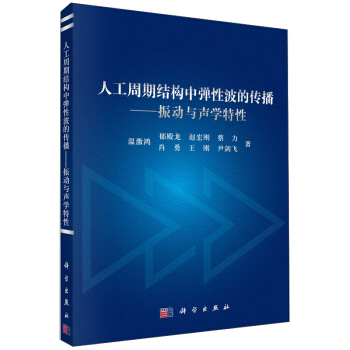
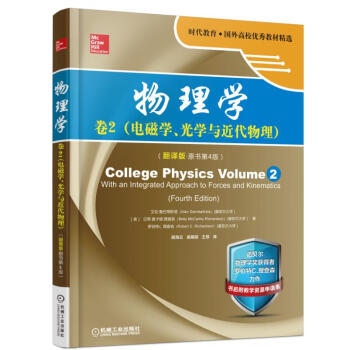
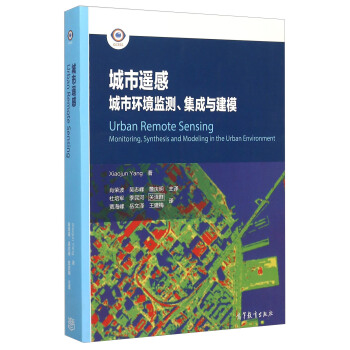
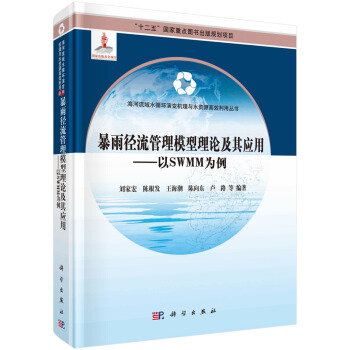
![黎曼的學術遺産:150年巡禮(英文版) [The Legacy of Bernhard Riemann After One Hundred and Fifty Years] pdf epub mobi 電子書 下載](https://pic.tinynews.org/11848314/5a8e56d3Nfd514c17.jpg)


![數學的本性(珍藏版) [Memorabilia Mathematica] pdf epub mobi 電子書 下載](https://pic.tinynews.org/11883757/56f8fee3N85d82212.jpg)
![數學與文化(珍藏版) [Mathematics And Culture] pdf epub mobi 電子書 下載](https://pic.tinynews.org/11884296/56f8fee4Ned6c76f2.jpg)
![無窮的玩藝 數學的探索與旅行(珍藏版) [Playing With Infinity Mathematical Explorations And Excursions] pdf epub mobi 電子書 下載](https://pic.tinynews.org/11884302/56f8fee4N355b1981.jpg)

![GIS應用與開發叢書:CityEngine城市三維建模 [CityEngine 3D Modeling Tutorial] pdf epub mobi 電子書 下載](https://pic.tinynews.org/12109136/58a12bd8N538ae034.jpg)


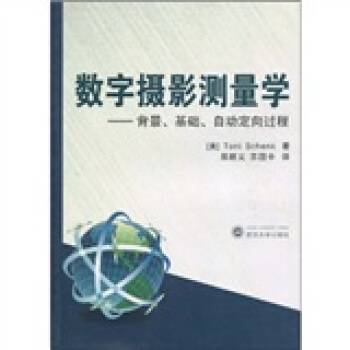
![從分子到網絡:細胞和分子神經科學導論(原著第2版 導讀版) [From?Molecules?to?Network?An?Introduction?to?Cellular?and?Molecular?Neuroscience] pdf epub mobi 電子書 下載](https://pic.tinynews.org/10123457/0f8d95ad-ad1a-4a5e-a7c2-5e0110ce89d8.jpg)
